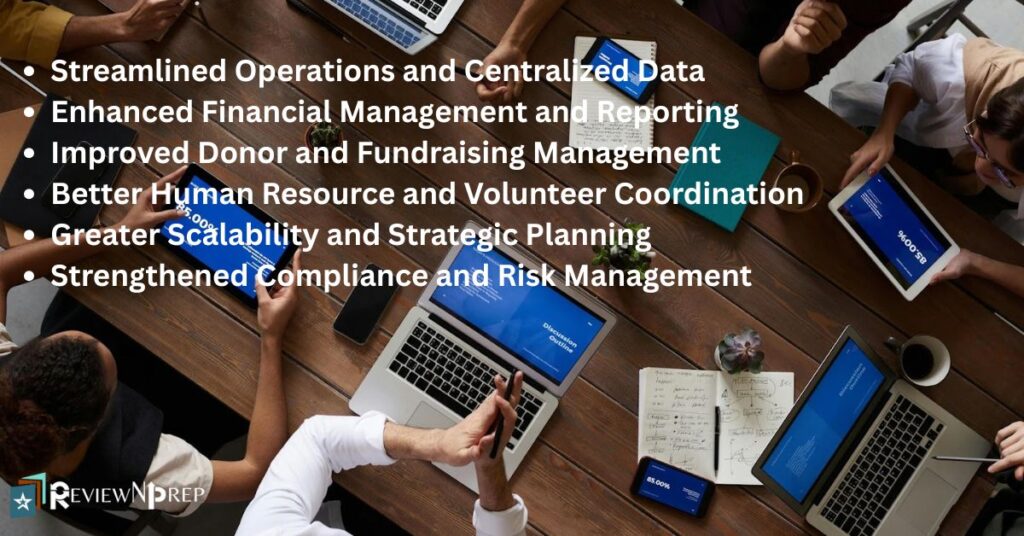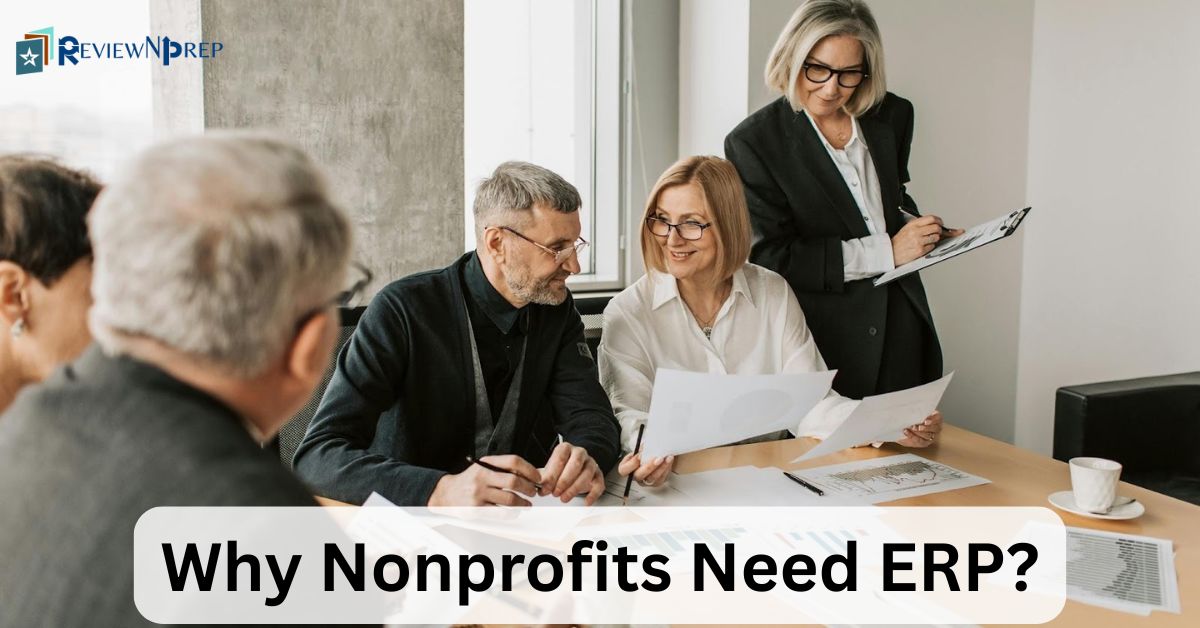Nonprofit organizations, much like their for-profit counterparts, face a range of operational, financial, and logistical challenges as they scale their missions and expand their impact. To remain efficient, transparent, and effective in an increasingly competitive and regulated sector, nonprofits are turning to Enterprise Resource Planning (ERP) systems.
Once reserved for large corporations, ERP software is now accessible and adaptable to the unique needs of mission-driven organizations. By integrating core business processes into a single platform, ERP systems help nonprofits manage resources, enhance accountability, and drive strategic growth. Here are six key benefits that illustrate the transformative role of ERP in nonprofit development.
Streamlined Operations and Centralized Data
Finding software to help your nonprofit grow begins with understanding the importance of streamlined operations and centralized data management. Nonprofits often juggle multiple systems for donor management, accounting, and volunteer coordination, leading to inefficiencies and errors. By visiting the official website of reputable ERP providers, you can explore solutions designed specifically to unify these processes into a single platform.
Centralizing data in one system ensures real-time access for all departments, reducing duplication and miscommunication. This integration saves valuable time and enhances collaboration across teams, enabling your nonprofit to focus more resources on its mission rather than administrative tasks.
Enhanced Financial Management and Reporting
Nonprofits operate under strict financial oversight, making accurate and transparent reporting important for maintaining donor trust and regulatory compliance. ERP systems provide robust financial management tools that automate accounting processes, track expenditures, and generate detailed reports on budget utilization.
With real-time visibility into financial data, leadership teams can make informed decisions about resource allocation and funding strategies. Many ERP platforms are tailored to accommodate nonprofit-specific requirements such as fund accounting, grant tracking, and audit preparation. These features simplify compliance and increase accountability to stakeholders, including donors, board members, and government agencies.
Improved Donor and Fundraising Management
ERP systems with constituent relationship management (CRM) capabilities offer nonprofits a powerful way to build and maintain relationships with donors. Instead of managing donor data through isolated spreadsheets or outdated databases, an ERP-integrated CRM enables organizations to track giving history, segment donor groups, and analyze trends.
This leads to more targeted communication, personalized outreach, and more successful fundraising campaigns. The system streamlines the donation process, automates acknowledgments, and provides detailed insights into donor behavior. By leveraging ERP tools to enhance fundraising strategy, nonprofits can strengthen donor loyalty and secure more consistent funding streams.
Better Human Resource and Volunteer Coordination
Managing a mix of full-time employees, part-time staff, and volunteers is a complex task for many nonprofits. ERP software includes human resource management functions that streamline recruitment, onboarding, scheduling, and performance tracking. Volunteers can be easily matched with tasks based on skills and availability, while managers can quickly identify workforce gaps or training needs.
Automated workflows and time tracking further reduce the administrative burden on HR departments. With a centralized system, organizations can ensure that all team members are supported and effectively utilized. This boosts morale and enhances organizational capacity and readiness for growth.
Greater Scalability and Strategic Planning
As nonprofits expand, their operational complexity increases. ERP systems offer the scalability needed to grow without overwhelming the administrative infrastructure. Whether an organization is opening new chapters, launching new programs, or increasing its donor base, ERP solutions can adapt to changing needs without requiring entirely new systems.
These platforms provide predictive analytics and forecasting tools that help leadership develop long-term strategies based on reliable data. With insights into financial trends, donor engagement, and operational performance, organizations can plan with confidence, anticipate challenges, and align their growth initiatives with mission outcomes.
Strengthened Compliance and Risk Management
Regulatory compliance, data protection, and ethical accountability are paramount in the nonprofit sector. ERP systems help manage these areas by standardizing processes, enforcing internal controls, and ensuring data security. Features such as audit trails, user permissions, and document management reduce the risk of fraud or error while simplifying compliance with legal and grant-related obligations.
Automated reminders for filing deadlines and reporting requirements help organizations stay on top of governance issues. Today, when public scrutiny is high and funding sources demand transparency, an ERP system serves as a vital tool in safeguarding organizational integrity and trust.
Final Thoughts

The growing complexities of running a nonprofit demand more than just passion and commitment. They require the right tools to ensure sustainability and impact. ERP systems offer nonprofits a powerful way to modernize operations, enhance financial clarity, and strategically position themselves for long-term growth. By embracing ERP technology, mission-driven organizations can focus more on their causes and less on administrative hurdles, delivering greater value to the communities they serve.
Further Reading:
How Enterprises Are Achieving Seamless Tech Operations
Key Benefits of Platform as a Service Development for Enterprises

